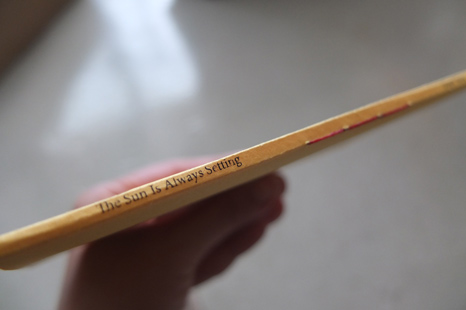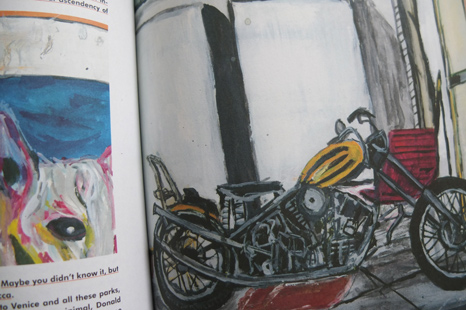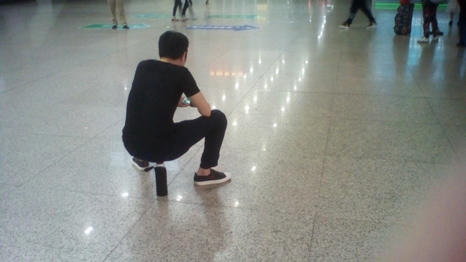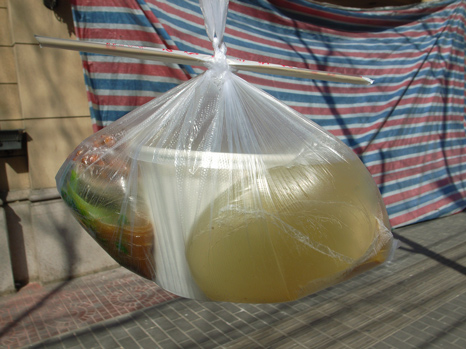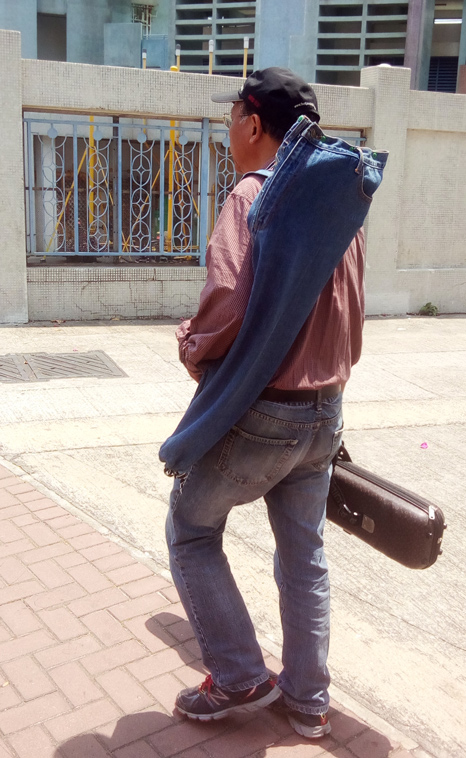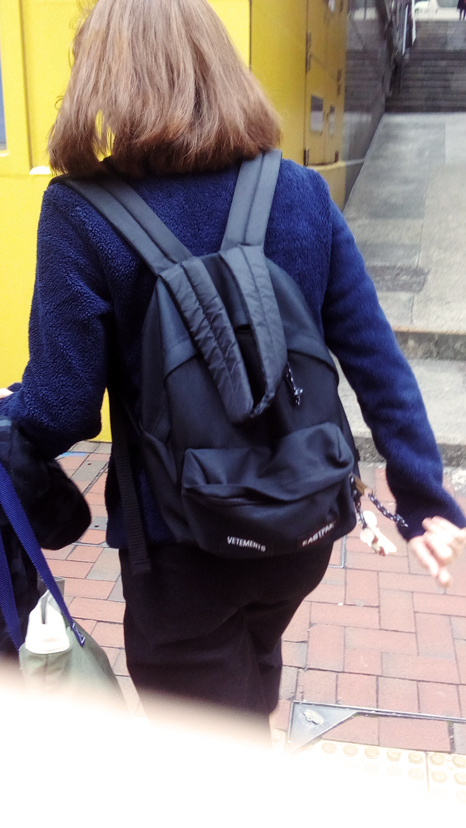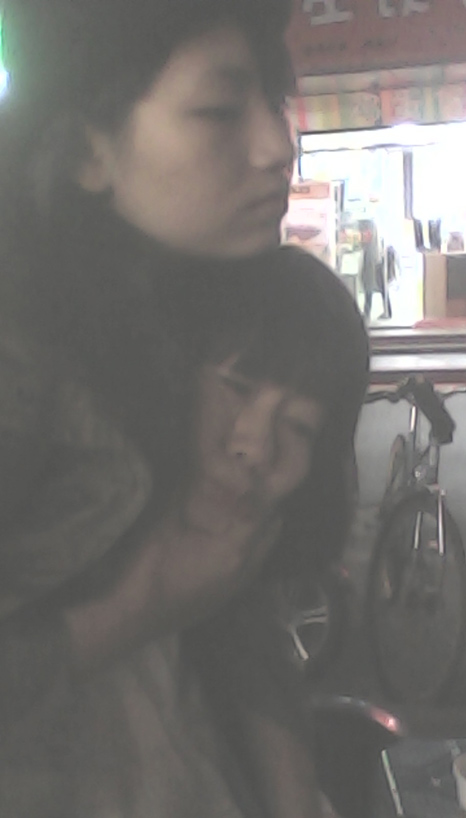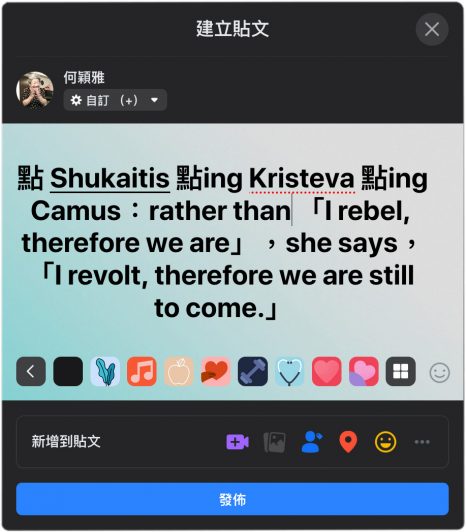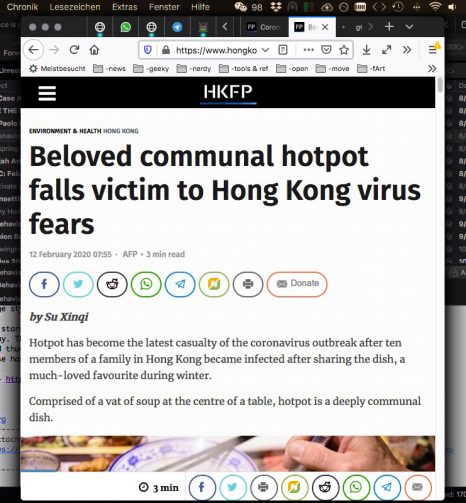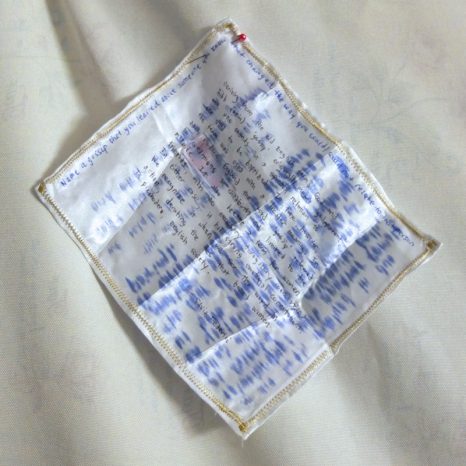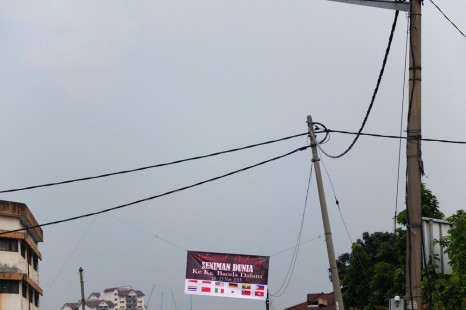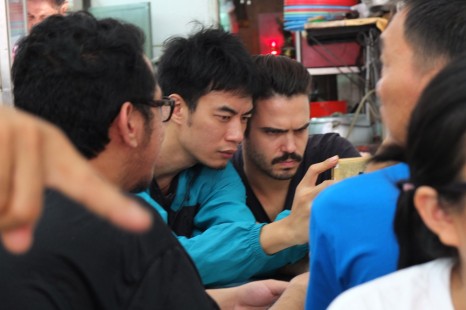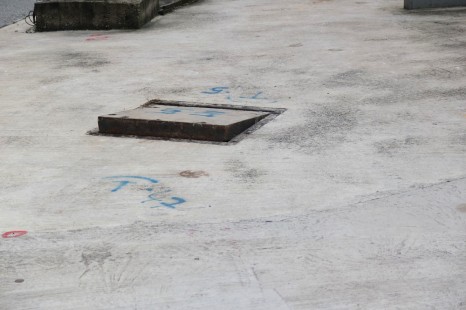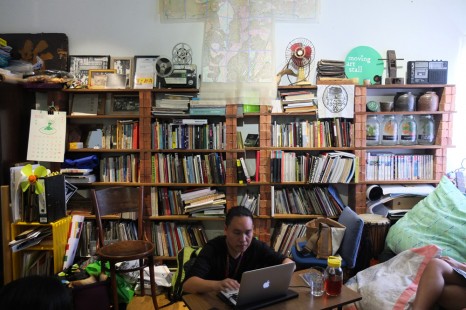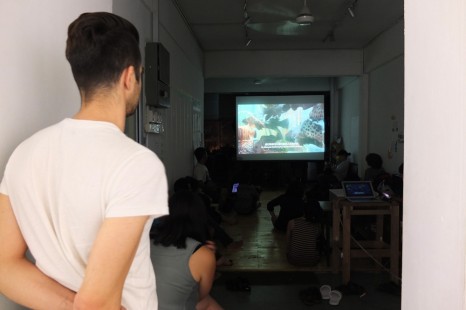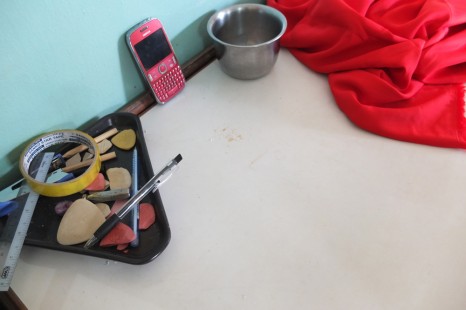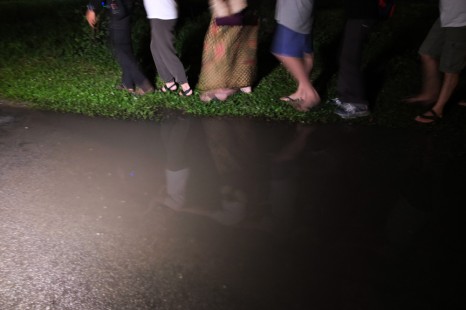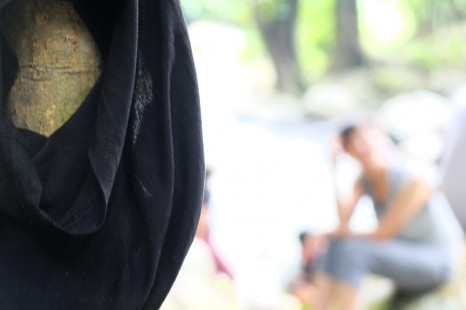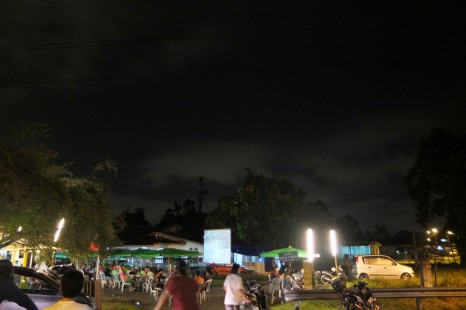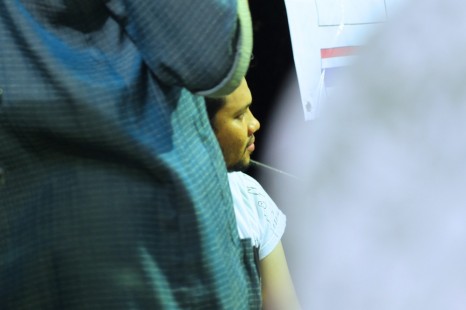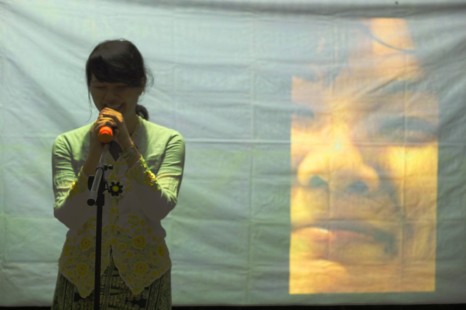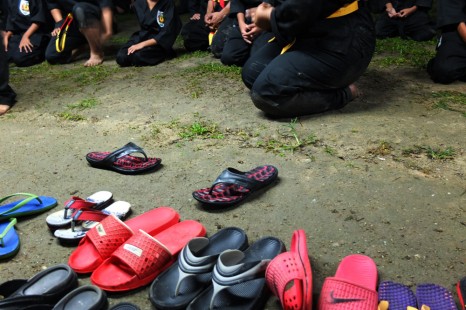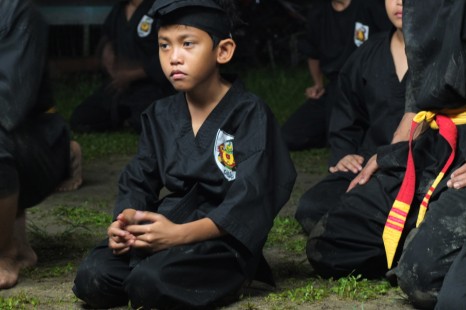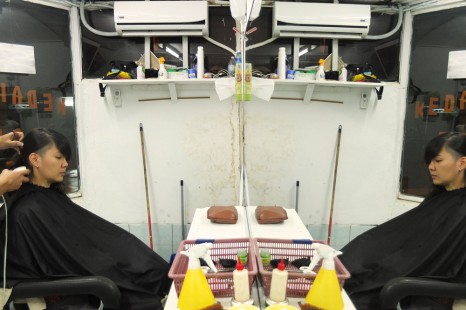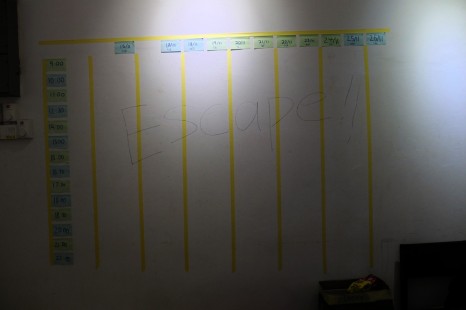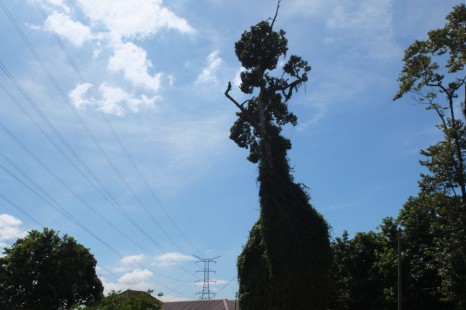dearest yous,
digital crumbs here in response to those things you said, those things you sent, real material ways and a digital means. ‘i am sorry for the delayed reply’ prefaces so many of these formations, followed mostly by the mental hesitation for apologising too much. though it’s nice to hear ‘no need to apologise’ in response sometimes, it takes a sorry to get there. truly sorry for too many things.
lateness somehow psychologically necessitated a more involved response, if this so-called ‘publicness’ can warrant any more meaningfulness. actually i told Ḅ that what i like most here is the anonymous intimacy of passerby in public, because being an outmoded place, it’s hidden in plain sight, Emily Dickinson style. there was a period when i wrote little notes and left them in random places, too, and i found one a few years ago that didn’t get distributed, so sent it to Ẳ in the post along with a bunch of other random things, but i think the clutter of it all overwhelmed her, so there was not much conversation about it afterwards. at the time, her son could just fit the quarter-sized sample jacket i made in fashion school.
so many things need explaining.
and your faith astounds me sometimes. but i guess we still make (it) work. it’s perhaps not so dissimilar——nudity in public, intimacies for those who were never keen at p.d.a., the weaning separation from one’s body that is called a work.
Art is insufficient to narrate the inhumanity of history, because it is insufficient to explain it. Disaster is either explained by means of psychology, or the savagery of society is described as if it were a supernatural event; fascism is presented ‘as the machination of rackets outside society, not as the coming-to-itself of society as such.’
-from The Orpheus Double Bind: What Can Writing Save?, Nurdan Gürbilek
and what would you say to those that don’t watch films, don’t really read books, don’t dance? aren’t they terrible, those people, how are you going to explain it to them? how are you going to wish for them the thing that changed you and you don’t regret it not one bit, except all the times you fail to explain it to your stern mother or that person in power that you wanted to impress. you’re sorry.
Ş, i like the digitised irony that your rooms reminded me of playing Hitchhiker’s Guide to the Galaxy, or growing up choosing my own adventure——though you don’t say ‘you’. but something like she says, it wasn’t birds but paper speaking——your real, material and actual post, Ş, so carefully bound by hand and sent to me across the Pacific just as you said you would, when most people don’t. and with that I have to tell you, unapologetically sorry, that I haven’t forgotten what I said I would send to you. it’s not ready yet, hopefully soon.
“Time the Great Healer (live at the Boston Museum of Fine Arts, 5 September 2006)”, Cat Power
though today i put off work to deal with a number of personal matters. and really that is an irony as well, as if they were separate in these realms, you know what i mean, but again it’s something about still learning to explain after all this time, i have to reiterate myself and you to yous again and again, because you weren’t listening and in my anger i don’t hear myself. maybe you’ll say i have to listen more in order to be heard. maybe.
i like that the package from Ĵ, one of the most dedicated in believing the romance of ‘art’ and ‘post’ all these years, came this time not directly from you but by the smooth spaces of guanxi through the editorial office of a magazine based in Spain. i like that you once fleetingly included me in one issue, and still hope that we’ll have that chance for a two-day dialogue over sidewalk beers some day.
“ピンクブッチ Pink Butch (ラララ Lalala)”, マジカル・パワー・マコ Magical Power Mako
i like that an e-mail from Ȼ seems so anachronistic amidst all of our other conversations online, that the tone differs by that very fact and that you’ve encouraged me thus to write poems in Chinese, like Ɀ also showed me, so simply, how line breaks make all the difference.
did i show you the poem he helped me to break?
每當你不在(身邊),我念及你的時候
總有許多的話,想要對你說
距離慢慢縮短,空間卻變得
越來越厚重
文字難以承載的那些話題
總與天氣有關
一種中間狀態,它從來不明白你
或者是我
我們侃侃而談
談論愛
卻總是不夠
— from the 視覺博物誌 Visual Diary Archive project “其人,其事:何京蕴 Just People, Just Timing: Anouchka”
and for Ḅ, who joined us most recently and 那麼有耐心 accompanied me 陪著我 so patiently on the 坐今天的山車 roller coaster of today:
Posted by 丫 | reply »
小攜帶理論,小說 small carrier bag theories,small fictions
you avoid nostalgia
「没开始我就开始抗拒」
but all these things, you, around
「让我消化抗拒」
__
生日快樂 happy birthday,ying
(quotations from cyan,2021年6月5日)
Posted by 丫 | reply »dopamine pathways №2
— from Imaginal Machines, before that Revolt, She Said, before that The Rebel
Posted by 丫 | reply »Textual Notes PWSSSRFS…
(there are reasons to think about my body and hygiene these days)
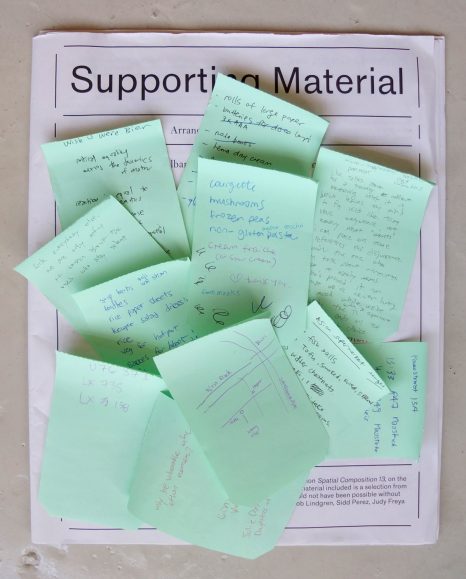
— Notes taken while on residency with Amy Suo WU at Motel Spatie; Arnhem Presikhaaf, 2020 January-February
In the time of that sojourn, a surface wound that stayed the entire time, irritated, flaming and hardened so much that it was narrated from being the oddity of a pimple on my hand to the paranoia of a wart-like abscess. It accompanied me during our conversations like a replacement for the biting of nails which had accompanied me since childhood, the extra psychosomatic conversation with myself to harmonise and discord with any other conversations going on in the room. And we spoke about intersectionality.
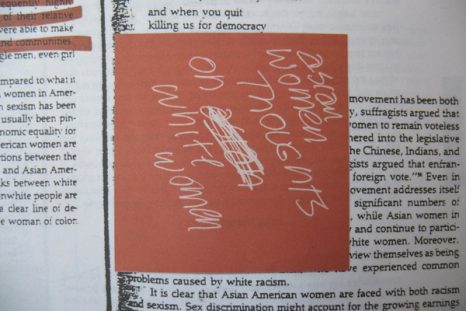
— from “Worlds in Collision: Multicultural Art History (Selection)” by Carlos VILLA, from Supporting Material by Celine CONDORELLI
I picked at it, making it bleed and scab over more than once, wondering if this would be the lifelong marker with which to remember this time. Other people get tattoos for such occasions, but somehow for me bruises, scars and mosquito bites were always enough. Sometimes I liked to think about the tiniest bit of spittle from an insect you never saw being smuggled transnationally, at peak seasons such that your body could carry two nationalities of mosquito saliva at the same time, recognisably different by the radius of red and degree of itch.
It was only a surface. But as my skin-scoring became manic, I remembered one of the first meals we shared together, when we were happy to find a few pairs of disposable chopsticks in the otherwise fork-and-knife-loaded space. A bit too brashly did I rip apart the two sticks and rub their ends together so as to smooth the rough edges in the way that we had learned, and somehow a little bamboo splinter had lodged itself into the meat between the thumb and forefinger of my right hand. This is the pressure point you are supposed to massage in order to release anxieties, and so it was that this residency——initially planned as an artistic labour——unfolded into my body subversively with a small army of histamines hardening a point known as 合谷 hégŭ, or LI-4. Like a pain to help release pain.
I had been telling everyone that it had been such a difficult year for me, or for most people in my context, rather, but now, when I had limited this sabbatical purposefully to run back into the fire, that heat seemed to flake away into something much more quietly insurrectionary, like the last hibernation before the end of the world. What were we gathering amidst these stories and meetings, me picking self-consciously at a surface wound on the back of my hand and scheming in those vague ways afforded by poetry? Would it be possible to be productive about this care in letting go, somewhere in between concern and a manic extraction of the conversation one has with oneself, parasiting off of the glimmers of knowledge and joy and jealousy of these people around me. So many intensities.
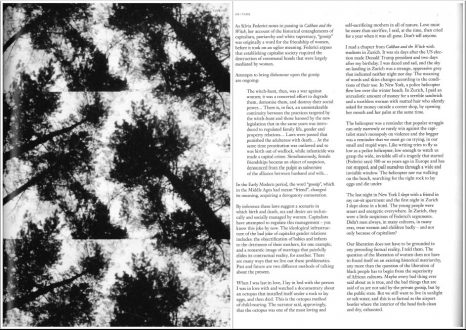
— “Witch-hunt: gossip has always been a secret language of friendship and resistance between women”, Hannah BLACK
In many parts of the world, women have historically been seen as the weaver of memory——those who keep alive the voices of the past and the histories of the communities, who transmit them to the future generations and, in so doing, create a collective identity and profound sense of cohesion. There are also those who hand down acquired knowledges and wisdoms——concerning medical remedies, the problems of the heart, and the understanding of human behaviour, starting with that of men. Labelling all this production of knowledge ‘gossip’ is part of the degradation of women——it is a continuation of the demonologist’s construction of the stereotypical women as prone to malignity, envious of other people’s wealth and power, and ready to lend an ear to the Devil. It is in this way that women have been silenced and to this day excluded from many places where decisions are taken, deprived of the possibility of defining their own experiences, and forced to cope with men’s misogynous or ldealised portraits of them. But we are regaining our knowledge. As a woman recently put it in a meeting on the meaning of witchcraft, the magic is: “We know that we know”.
— Witches, Witching-hunting and Women, Silvia FEDERICI
Among you, it becomes difficult to compare all that has been said to all that has not been said. All of these conversations. And these words are a conversation with those conversations, if not simply out of a question of translation but out of the need to make space for myself in this constellation of you(s) and me(s). To ascertain, like that book I took from your bookshelf: Feelings are Facts. We(s) would need to meditate through hours and hours of these discourses in order to sift though the medley of feelings that make up this moment, and that is a fact, too. Yes, as the witches say, “We know that we know“.
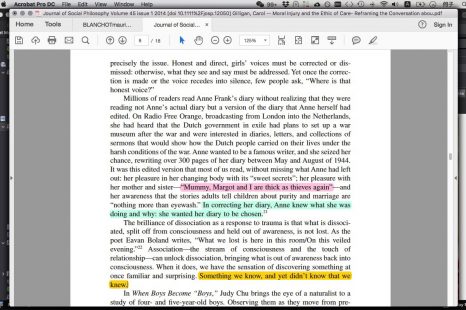
— “Moral Injury and the Ethic of Care: Reframing the Conversation about Differences”, Carol GILLIGAN
And maybe I know too many things. My head is filled with all sorts of banalities like the facial expressions of strangers and the taste of your favourite Grüner Veltliner and the prick of winter mosquitoes. Like the approximate sojourn of a piece of shit that appeared a few days after I arrived. It was the lack of anyone’s care to remove it from the narrow path between our residency room and the project space, making it such that you took the long route around every time, while I forged ahead to play hopscotch. I had the forethought that this dog I never saw had left the natural wastes of its circulating body just like the mosquitoes, and perhaps I should bring other contraband back this time as another memento of my stay. But an uncared-for poop was just a parallel temporary visitor like us to this space motel, and the day before I departed, what were now like hardened coal nubs finally blew away with that strange storm of not very much rain. Perhaps its winds were so great it blew its own rain away, a storm having a frightening conversation with itself. Its utterances came out like screeches and gales that shook the glass of our cove. From inside, we lifted our heads up in awe, and when we went outside we walked at strange angles with our heads down, pretending not to overhear. Buddha was also blown violently away that day, falling off of a neighbour’s balcony and left as an Asian corpse shattered in the white neighbourhood. In the beginning I kept thinking we would have been a strange sight here, our little crew, but actually there was nobody around most of the time, and we were left to play on our own like children at the slumber party. We stole time that way, turning their money and our own productivity into a space for taking care. Even so, I walked on that shit at least once, but you took time, and we cleaned up our tracks together. Self-quarantine, if you want to call it——I gained ten kilogrammes, too——but something else feels lighter because I know we had taken it on together. This takes space and so it was that ‘project ruimte’ was exactly that, not as the space for projects but a project to make space, as a fact of feelings between us——to read together with long pauses in between, to write letters from near and far, and to eat and resist the fallen communality of a shared meal out of one bowl. To be together and trust in someone else’s voice to guide when our eyes are closed.
I don’t know yet how to bring this space into visibility. And maybe it doesn’t have to, except as mischievous glances and giggles between those of us who know, and even if you don’t see us you will feel the smiles in our voices in that space behind your ears and in front of your neck——a tingling somewhere between an itch and a tickle to make chords and discords in you, too. Take care.
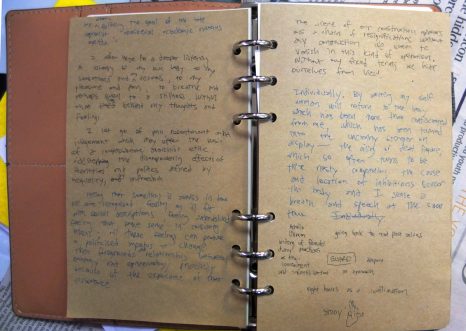
— Altered quotations and notes taken from the afwasdoekje reading group, PWSSSRFS No. 1, 2020 January 25
Posted by 丫 | reply »
anything fun going on
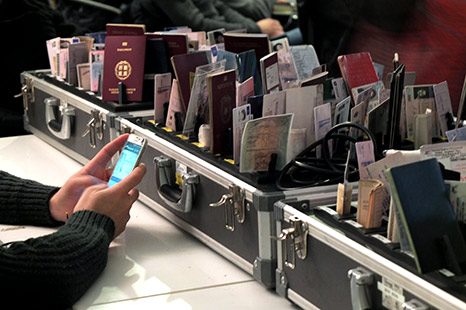
Is ‘Anything fun going on?’ a funny or weird question? I thought it was quite quotidian——’怎么样?’、’What’s up’——but if it all sounds too rhetorically polite and this context of digital correspondence should eliminate inquiries into some IRL, please accept my sincerest apologies.
unwarranted aside into anecdote. i was in a shopping mall the other day and while browsing a selection of a proud to be Texas-born international company’s fine wristwatches, the perky shop assistant asked, ‘So what have you been up to today?’, the unfortunate response being my fleeing the store. What should be reported of my day to a pouncing stranger tracking my eyeball movements to see which watch i’m attracted to——or as if now the policing and surveying has become so diffuse that everyone, even the shopgirl, is a viable check and measure on the status update of each and every consumer. Because yes we are all consumers now, taking precedent over ‘citizenry’, no more obviously felt than by way of those worldly practices people are able to maintain relatively easily in every place (latte, hamburger, uber ride). Of course, this is an observation of privilege coming from an (un)fortunate frequent traveler of ‘destinations’ that bear Starbucks logos as opposed to those other greater parts of the world still lacking decent infrastructure and education for its inhabitants, parts of the world that are still war-torn or ‘uncivilised’, parts of the world where the imperatives for freedom are not yet measured by the variety of packaged goods. And even if you don’t frequent Starbucks, or McDonald’s, or hitch uber, the fact that there are equally plentiful ‘organic’ and ‘artisanal’ backups is another minima moralia.
That is the fun going on, actually. We’re having so much fucking fun everyday we don’t know what to do with ourselves. Asking ‘anything fun going on’ is offensive, maybe, you’re right. Like swiping feeds, goddamit, information bloodsucking, ‘consumers are always right’.
‘Anything fun going on’ is like the airline attendant at the check-in counter who, since I’ve told her my profession is ‘artist’, asks where my most recent favourite exhibition has been. She is curious to know not only the city but the name of the institution, and for a moment i imagine her honestly believable sincerity. She proceeds to ask me which show was my favourite. A show that I have participated in or any show in general? Yours. Okay, hmmm… trying to be quick and effortless (speed and style as truth), I tick off a show that took place at a gallery in a different city. What is the name of the gallery? And as I name a name, I wonder about her interest in the institutions of culture, about the casual sophistication of big brothering these days, at this makeshift tin terminal that appears to have been built specifically for flights to the United States and Israel. This is perhaps due to the extra demands for security, both from the increased chance of malicious attacks and from the U.S. imposition of preemptive security measures abroad to prevent such attacks. So when a young Italian woman in uniform asks me about the fun details of my life, a subjective displacement has already taken place, and cynicism says it’s not a person talking to me, but the mechanisms of a system which have already striated us into one of a few alternating roles: policing agent, perpetrator, victim or just another piece of data. Friendliness as an appropriation for smoother extraction. Consumer interaction as marketing as profiling as social control as endless production.
You always put the state and the spy as counterforces, but I am afraid ‘the gravitational force of what is bourgeois’ within us entertains the story in its complexities of rendering forces ambiguous. Spy works for state. What is the name of the state? And how do you do today?
Posted by 丫 | reply »the .3 percent
he said, “our progress is not inevitable“.
Posted by 丫 | reply »truly, and related Posted by 丫 | reply »
notes on Thirdspace, errant crepe
To enter a space from the critical position is a contradiction of sorts, both an opening and a closing. The body moves forward passively while the mind holds back actively. It is a splintering of awareness, perhaps not so dissimilar to a contemporary condition, bearing and baring a third position, more, wanting to be found, approaching words. I can affirm it again to you here now, as we read, there is something Aleph-like.
I said to myself that I would simply watch the movie. Doubts carrying forward, being ushered into, I followed the direction pointed to by the slightly hunched figure, down a dark parallelogram path towards the light of the screen, looking down once to see the 3 for row number, then back up to see Larger-Than-Life in conversation, a film already started. There were co-conspirators in the packed room, but I did not know where they were. I crossed the cold light reflected on subsumed faces towards the single empty seat in row 2, a quick thought that someone must have taken my seat one row above to be with a friend, then sank down low into the seat. Larger-Than-Life was still in conversation, it seemed to be something about making a film.
I turned halfway around, half afraid to really see my co-conspirators. Something kept me from the spirit of conspiracy, something personal, or perhaps a lack of solidarity. One week ago, they had reminded me of another meeting room from a few years before, with the same mischievous eyes lighting up over the details of planned public disturbance. Piss, shit, throw light in their eyes. But really it was not the boy band instigators as such that disturbed, it was the nomenclature. Co-conspirators were supposedly reading partners, we were told, and we had been reading from Soya, from Los Angeles to Amsterdam to Shanghai, from Thirdspace. The proposition to hold the meeting outside of its usual locale was perhaps an active form of reading, but in question was the lax literation of thirds into cinematic space, only debated in heat against the Space of a clothing store chain dressing room which had recently dominated newstainment chatter. In the latter case, a so-called private space had been tried on as cinematic Space, and a pair’s selfie sex on one square meter led to the further reaching destruction of a human flesh search in world wide web space. The publicness of this act and its consequences are marked by the ambiguity of it being a privately initiated endeavour along the lines of viral marketing. As a question of publicity, the dressing room thus warranted a reading, some argued, but in the end, a general passivity among the group met par with one person’s insistence to hold the next session of the reading group in a cinema.
Tickets, erguotou, mirrors and glowing wands used at concerts were purchased. A WeChat group serves as organizing device and reading medium, the giggling Thirdspace amidst the Firstspace of the screening room and the Secondspace of Tiny Times. There is an obvious condescendence which carries the absurdity to a high.
At the edge of row two’s uplifted faces, I slink down a bit lower, obediently guilty for continuously checking mobile phone activity. This radical opening feels predictably like grade school, and from the inadvertent margin of the second row, I choose to watch a film.
There is a scene in which the struggling director narrates a flashback to his deflated crew, and desaturated color effects drone out the cliché of the director as schoolboy, othered for his invention of a superhero fueled by the power of egg and coriander crepes. As audience, we laugh in a comedic Space created by effect and affects. It surrounds the actors playing actors like a gelatin, wiggling around their low-budget tears of outcast. We laugh while they cry, but everyone identifies. Solidarity is renewed. The film in the film must go on.
Someone in the chat group is counting the number of people leaving the Space. I must have been too absorbed in Secondspace to have noticed, and looking back again to the audience behind me, nothing looks out of place in the frame of vision——simply another imprint of Society of the Spectacle.
This movie has indeed a spectacular way of making us enjoy its cheapness, as it lays bare the superhero genre while keeping all the same tropes intact. I like seeing the texture of his badly crafted mask in high-resolution from the second row, the clumsy choreography of a fight scene traced by zip lines, sappy talk about dreams and ideals from the tops of skyscrapers. It was at that moment that someone in Thirdspace chimed up about his own endurance, that he was the only remaining conspirator among the group, the rest trying to arrange a meeting point somewhere around the nearest metro station after being ousted by security. I thought perhaps we were dreaming the same dream together from two sides of a peak, an unseen cohort and I, but perhaps doubt was my only audience. I romanced myself in the numbness of Secondspace before suddenly falling down a dream of Four, Five. Nobody gets to see the film in the film, and nobody saw me appear! Doubt opens elsewhere, I am overwhelmed counting Spaces. Real pop stars make cameo appearances playing themselves, and it is they, with the thrill of Firstspace, who promise that “the making of” (Five) will be even better than the film (Four). That is how it ends, the rock band walks away, fading into the fiery gases of promise. It is as stupidly bad as I had begun, ironically ushered into an opening and closing. Self-castaway from my co-conspirators in Tiny Times, this was Larger-Than-Life!
Posted by 丫 | reply »

